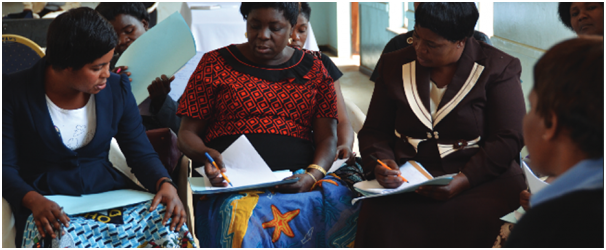
INSTITUTE OF AFRICAN STUDIES
Objectives of AUW IAS
AUWatch Institute of African Studies (AUW IAS) is a multi-disciplinary and inter-disciplinary centre of excellence with the mandate to increasing knowledge about the AU amongst primary and secondary school students in Africa.
The Institute carries out this mission by engaging in the regeneration of Africa and her people through academic research, teaching and critical scholarship on the AU, and the production and dissemination of materials about the AU and AU Member States. Our primary target groups are primary and secondary school children in Africa. Do you think it is right for our children to ‘graduate’ from school without knowing the political, economic and social structures that actually run the continent? We didn’t think so. We can work together then.
Innovating Pedagogy: If you are a teacher, you can help us!
 AUW IAS offers teachers, human rights activists, development practitioners training and other educational activities on a wide range of AU policy areas. The mission of the AUW IAS is to equip both students and professionals with original insights and tools to better understand the AU. At our headquarters in Banjul, and in some of our chapters we organise monthly lectures, open discussions and interactive sessions with academics, human rights and legal practitioners to stimulate interest in AU policy-making and encourage fresh thinking among the younger generation of Africans who will shape and lead the AU in the future. So, if you are teacher, or a human rights practitioner, we invite you to attend and take part in this ground-breaking approach of exploring new forms of teaching, learning and assessment, to guide educators and policy makers at the AU.
AUW IAS offers teachers, human rights activists, development practitioners training and other educational activities on a wide range of AU policy areas. The mission of the AUW IAS is to equip both students and professionals with original insights and tools to better understand the AU. At our headquarters in Banjul, and in some of our chapters we organise monthly lectures, open discussions and interactive sessions with academics, human rights and legal practitioners to stimulate interest in AU policy-making and encourage fresh thinking among the younger generation of Africans who will shape and lead the AU in the future. So, if you are teacher, or a human rights practitioner, we invite you to attend and take part in this ground-breaking approach of exploring new forms of teaching, learning and assessment, to guide educators and policy makers at the AU.
Are you an expert in drawing up a curriculum?
 We want to hear from you. The future success of the African continent lies to a large degree in its ability to hone the skills and talents of its ever-growing youth population. However, in many places in the continent, the current education system is outdated and not preparing children for the future. Can you help?
We want to hear from you. The future success of the African continent lies to a large degree in its ability to hone the skills and talents of its ever-growing youth population. However, in many places in the continent, the current education system is outdated and not preparing children for the future. Can you help?
Millions of our children leave school with very limited knowledge of the continent they were born or growing up. What justification do we have for not including financial education, anti-corruption studies, human rights or general AU studies in the education of our children – right from primary through secondary school and beyond? Quality education still remains an illusion to many of Africa’s youth.
You probably know that of all regions, sub-Saharan Africa has the highest rates of education exclusion. Over one-fifth of children between the ages of about 6 and 11 are out of school, followed by one-third of youth between the ages of about 12 and 14. We are told that that an estimated 90 million African children are currently out of school.
According to UIS data, almost 60% of youth between the ages of about 15 and 17 are not in school. Without urgent action, the situation will likely get worse as the region faces a rising demand for education due to a still-growing school-age population.37 million African children will learn so little while in they are in school, that they will not be much better off than those kids who never attend school. To put it mildly, the prognosis for Africa’s future economic growth and social development is poor.
Access and quality of education must go hand in hand. Quality without access will lead to inequality and exclusion; access without quality will limit the potential and would not bring [about] the desired results intended by Agenda 2063.
So, are you a qualified teacher, with experience of developing instructional material, coordinate its implementation with teachers and principals, and assess their effectiveness? If so, we would love to hear from you. We are developingteaching materials on African Union Studies for primary and secondary schools; police, prisons and military academies.
So, if you are you a teacher with experience in providing practical content and policy-oriented training, we would love to hear from you.
What will you be doing?
You will be promoting critical thinking and in-depth learning of real-life AU policy issues, including:
Interested? Why don’t you check us out at our Centre for AU Studies?
You can be trained to develop and teach AU modules
 We also offer some training to assist our curriculum developers. Our training programme offers a comprehensive coverage of all AU policy areas including, AU Institutions; Agenda 2063; AU reforms;AfCFTA;media &good governance; democracy; law & human rights; anti-corruption; conflict resolution, peace & security; infrastructure & energy development;rural economy&agricultural development; trade, customs & industrial development; visa free Africa; promoting health & nutrition; migration; labour & employment; promoting sports & culture; education, science & technology; youth development; economic integration & private sector development; diaspora & civil society engagement; gender equality & development;industry, science and technology; energy, natural resources, and environment; transport, communications, and tourism; labour, and social affairs; education and culture;Africa’s youth; monetary and financial affairs; AU macroeconomic governance, regulation and the economics of financial markets, energy union and climate change, AU single market and the four freedoms, Decision-making across AU policies.
We also offer some training to assist our curriculum developers. Our training programme offers a comprehensive coverage of all AU policy areas including, AU Institutions; Agenda 2063; AU reforms;AfCFTA;media &good governance; democracy; law & human rights; anti-corruption; conflict resolution, peace & security; infrastructure & energy development;rural economy&agricultural development; trade, customs & industrial development; visa free Africa; promoting health & nutrition; migration; labour & employment; promoting sports & culture; education, science & technology; youth development; economic integration & private sector development; diaspora & civil society engagement; gender equality & development;industry, science and technology; energy, natural resources, and environment; transport, communications, and tourism; labour, and social affairs; education and culture;Africa’s youth; monetary and financial affairs; AU macroeconomic governance, regulation and the economics of financial markets, energy union and climate change, AU single market and the four freedoms, Decision-making across AU policies.
Interested? Why don’t you see what we can do together at our Centre for AU Studies? Or you can mail us at: [email protected]
‘Africa Learning Barometer’
 We are running the ‘Africa Learning Barometer’ project – an interactive feature that analyses the state of education and learning in Africa through four indicators: school enrolment, school completion, content of what is being taught and education inequality. The Barometer is a collaboration between AU Watch and University of The Gambia.
We are running the ‘Africa Learning Barometer’ project – an interactive feature that analyses the state of education and learning in Africa through four indicators: school enrolment, school completion, content of what is being taught and education inequality. The Barometer is a collaboration between AU Watch and University of The Gambia.
We would love to hear from you. If you are interested in helping us, please email us at:[email protected]
AU Watch APAS Programme
 When looking at Africa’s future, experts often cite the continent’s large, growing young population as an asset. Half of the continent is under the age of 20 and all 10 of the world youngest countries are in Africa. These statistics represent a powerful workforce for the next several decades. Similarly, the “demographic dividend” suggests a pool of future leaders, from local communities to national level and even regionally
When looking at Africa’s future, experts often cite the continent’s large, growing young population as an asset. Half of the continent is under the age of 20 and all 10 of the world youngest countries are in Africa. These statistics represent a powerful workforce for the next several decades. Similarly, the “demographic dividend” suggests a pool of future leaders, from local communities to national level and even regionally
AU Watch ‘Agenda 2063 Program for African Students’ (APAS) is Africa’s leading academic enhancement and leadership development program of its kind for African secondary school students planning to pursue tertiary education and who wish to make a meaningful contribution and impact in the continent. It is a two-week ‘summer’ programme inspired by the African Union’s Agenda 2063 Programme especially the need for ‘Africa to develop its own long-term strategy to regain its own destiny’, with Africa’s youth at the helm.
Want to know more?
Our APAS programme is a two-week Summer School programme that brings together African youths between the ages of 13 – 19, from around Africa to address pressing regional challenges within the context of the African Union’s Agenda 2063 Programme. It seeks to empower outstanding and very committed secondary school students in Africa through a two-week rigorous academic and practical coursework on the African Union, African leadership training and networking. This educational experience for young regional leaders is designed to strengthen their knowledge and skills, empowering them to be more effectively involved in building peaceful societies and collaborating across differences, through an increased network spanning the globe.
The APAs programme is based on a simple philosophy – the conviction that the African youth are a driving force for positive social change and should receive adequate support to enrich their action.
Want to be part of it? Let’s explore more of what we do togther?
Interested? Get in Touch